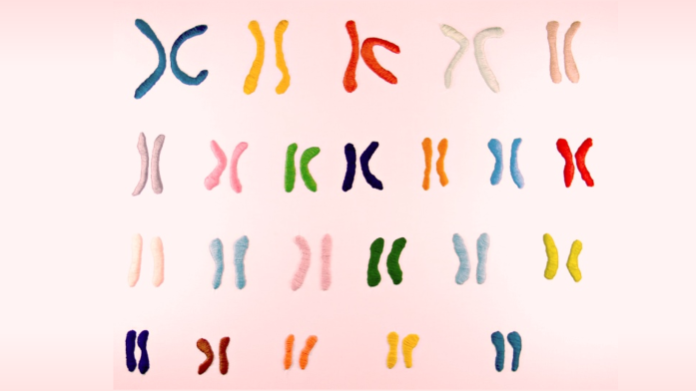Determining disease risk in the US is no longer reserved for the doctor’s office. The company 23andMe that has been providing the public, including Canadians, with genetic information for over ten years, has finally received FDA approval for its at-home genetic test to determine the risk for developing certain diseases. With this new ruling, 23andMe will not only be able to tell Americans if they have the genetic markers for disease, but also give you a calculated risk percentage – a service they’ve been offering in Canada and the UK since 2014.
“This decision is unprecedented, and shows that the FDA is truly embracing personal genomics, or the right of anyone to access his or her own genetic information,” say Yann Joly, Research Director at the Centre of Genomics and Policy in Montreal, and doctoral candidate, Gabrielle Bertier.
Health Canada, on the other hand, declines to regulate these types of genetic tests, saying the service falls under the jurisdiction of the provinces.
Currently, 23andMe’s test is only for ten diseases, where very well-studied mutations substantially increase disease risk, including Parkinson’s disease, late-onset Alzheimer’s disease, and celiac disease, but could be expanded to others in the future.
Something to spit at
The new policy change won’t change the general procedure 23andMe uses for is genetic testing. Users will still receive a kit in the mail and fill a vial with saliva that they’ll send back to the company. The saliva contains enough DNA for 23andMe to test for a variety of gene variants that give information about genetic traits (like male pattern baldness), drug response, ancestry, and now, risk of disease development.
But just because you can find out, should you? And maybe more importantly…
Would you want to know?
Your genes make you who you are, but at the same time, they are (currently) unchangeable, so how does this type of risk information help you?
Tim Caulfield, Canada Research Chair in Health Law and Policy and Professor at the University of Alberta, thinks the pros are fairly limited.
“This information is largely probabilistic. These tests aren’t going to tell you if you are going to get a disease. They provide a bit more risk information,” says Caulfield.
And for the most part, being told you’re at a higher risk for disease rarely changes behaviour.
“Indeed, studies have consistently demonstrated that providing genetic risk information does little to motivate healthy behaviours.”
Those that are wary of the test argue that the information can be taken out of context without a doctor to help interpret the data, causing undue worry, but studies have shown that people actually don’t panic after receiving genetic risk information. And, since the recent adoption of Bill S-201, Canadian’s genetic information cannot be used as a condition for refusing service to an individual*.
Still, there are other potential problems that could stem from DIY disease risk determination like the kind provided by 23andMe.
These tests aren’t cheap and are not covered by insurance, potentially widening wealth inequalities within healthcare.
“This model of access to genetic tests may threaten Canadian citizen’s equal rights to healthcare, by giving wealthier consumers the possibility to know more information about their own health,” say Bertier and Joly.
Caulfield thinks we also need to consider the impact this testing might have on health systems. If an individual believes they’re at higher risk for a disease, they may misinterpret mild symptoms as something more serious. Might this lead to clogging of an already stressed hospital system with unnecessary testing?
Caulfield is also worried about alternative practitioners, including naturopaths and homeopaths, who might recommend these tests as a way to push their own, science-free health advice and remedies.
The information provided by 23andMe is based on scientific evidence, but, like many scientific studies, that doesn’t meant it can’t be abused or misunderstood. So if you do decide to go the DIY route, make sure you’re going in fully aware.
*Update Apr. 14, 2017: Bill S201 has been adopted by the House of Commons but it is still awaiting royal assent and implementation formalities before it can take effect which could take several months. Additionally, if Prime Minister Trudeau submits the Bill to the Supreme Court to assess whether it raises constitutional issues, there will be extended delays.








































